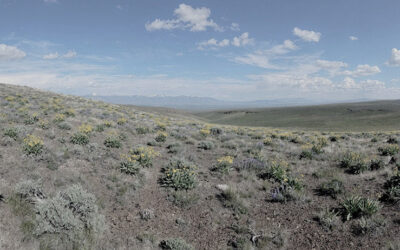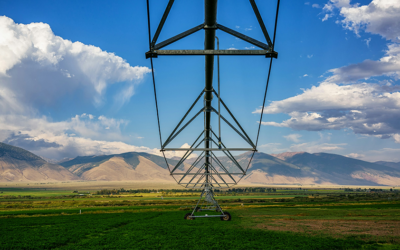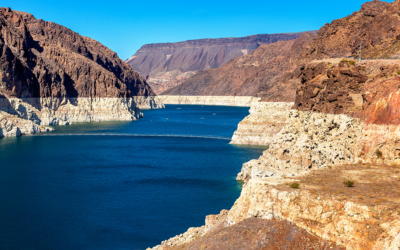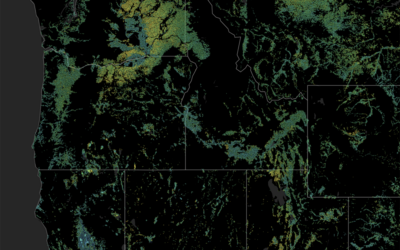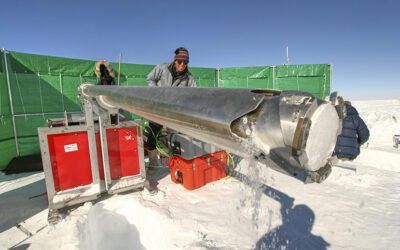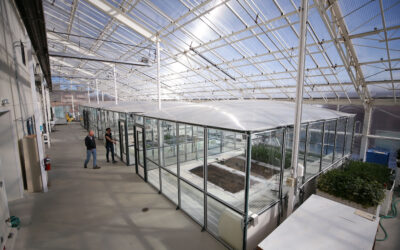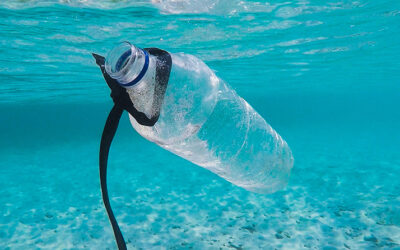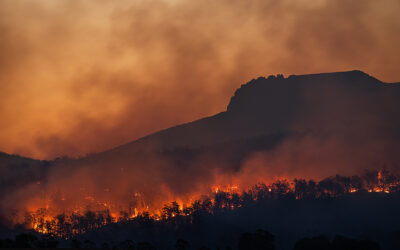News & Announcements
Working to Solve our Most Challenging Environmental Problems
DRI’s research calls on the expertise and methods of scientists from multiple scientific disciplines. More than 600 highly-skilled scientists, engineers, technicians, students, and staff work collaboratively within and across three research divisions, focused on understanding and answering critical science questions about global climate change, water quality and availability, air quality, the sustainability of desert lands, life in extreme environments, education, and more.
Climate Engine Launches New Website to Facilitate Drought and Vegetation Monitoring
Climate Engine is partnering with the Bureau of Land Management (BLM) to guide drought planning on BLM-managed lands with support from NOAA’s National Integrated Drought Information System (NIDIS).
NSHE Board of Regents Renews Contract for DRI President Acharya
Dr. Acharya’s first term as president of DRI has been marked by notable achievements and leadership, particularly in navigating challenges such as the COVID-19 pandemic and financial constraints. His strategic priorities focusing on optimizing performance, elevating awareness, and cultivating engagement have helped drive the institution forward.
Xiaoliang Wang and Gabrielle Boisramé Receive 2024 Board of Regents Awards
Nevada System of Higher Education (NSHE) Board of Regents awards Xiaoliang Wang, Ph.D., with the 2024 Mid-Career Researcher Award and Gabrielle Boisramé, Ph.D., with the Rising Researcher Award
Ancient Pollen Trapped in Greenland Ice Uncovers Changes in Canadian Forests Over 800 Years
The new study helps illuminate how changes in forest composition followed European settlement and natural changes in climate.
New Study Reveals Impacts of Irrigation and Climate Change on Western Watersheds
DRI’s Justin Huntington coauthored the new study, led by researchers at the University of Montana and the Montana Climate Office, which published mid-December in the Nature Journal, Communications Earth and Environment.
DRI, UNLV to Partner on Regional Climate Innovation Consortium
The National Science Foundation (NSF) today announced a multi-institutional consortium – which includes UNLV and DRI – to confront the climate challenges facing the desert Southwest and spur economic development in the region.
A New, Rigorous Assessment of OpenET Accuracy for Supporting Satellite-Based Water Management
A new study offers a comprehensive multi-model, large-scale accuracy assessment of an operational satellite-based data system to compute evapotranspiration. The researchers found that OpenET data has high accuracy for assessing evapotranspiration in agricultural settings, particularly for annual crops like wheat, corn, soy, and rice.
The First Assessment of Toxic Heavy Metal Pollution in the Southern Hemisphere Over the Last 2,000 Years
An international team of scientists led by DRI found evidence of Southern Hemisphere heavy metal pollution preserved in Antarctic ice cores from early Andean cultures and Spanish Colonial mining that predates the Industrial Revolution by centuries.
DRI-Developed Company TuBiomics Named A Top Ten Agri-Biotech Solutions Company of 2023
With support from the Nevada Governor’s Office of Economic Development, TuBiomics has emerged as a leader in developing plant and soil health products using sustainable, natural, chemistry-based solutions.
First Dive Survey of Lake Tahoe’s Lakebed Finds High Amounts of Plastic and Other Litter
Scientists teamed up with nonprofit Clean Up the Lake to collect and analyze litter found on the bottom of Lake Tahoe. In one of the first studies to utilize scuba divers to collect litter from a lakebed, 673 plastic items were counted from just a small fraction of the lake.
DRI’s Hans Moosmuller on Antarctic Expedition to Investigate the Impacts of Pollution Near the South Pole
Hans Moosmuller, Ph.D., joins two Chilean scientists from the Center for Environmental Technologies (CETAM) of the Universidad Tecnica Federico Santa Maria on an expedition to Antarctica’s Unión Glacier, located just a thousand kilometers from the South Pole.
Climate Change Will Increase Wildfire Risk and Lengthen Fire Seasons, Study Confirms
Scientists examined multiple fire danger indices for the contiguous U.S. to assess the impact of climate change on future wildfire risk and seasonality.
